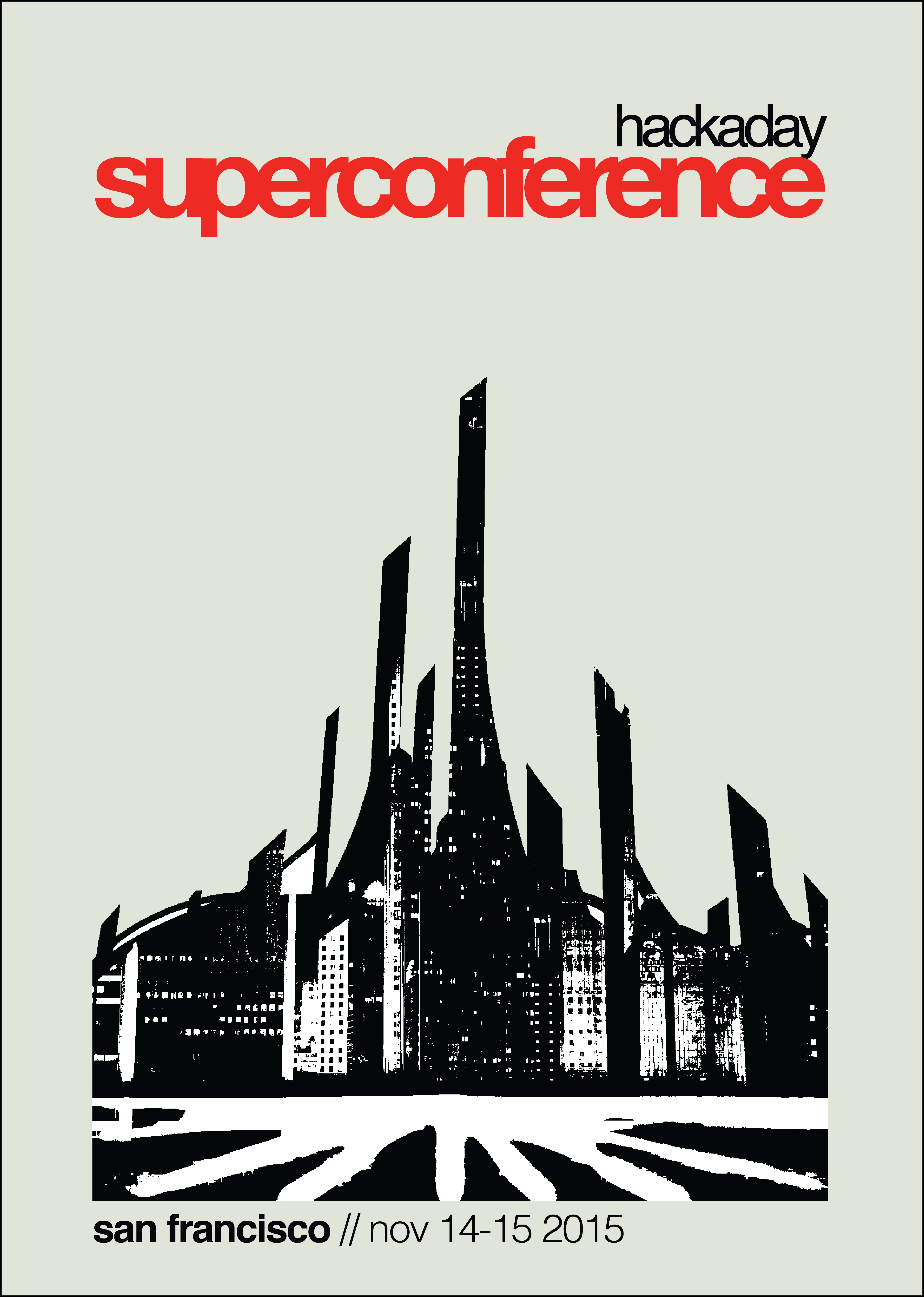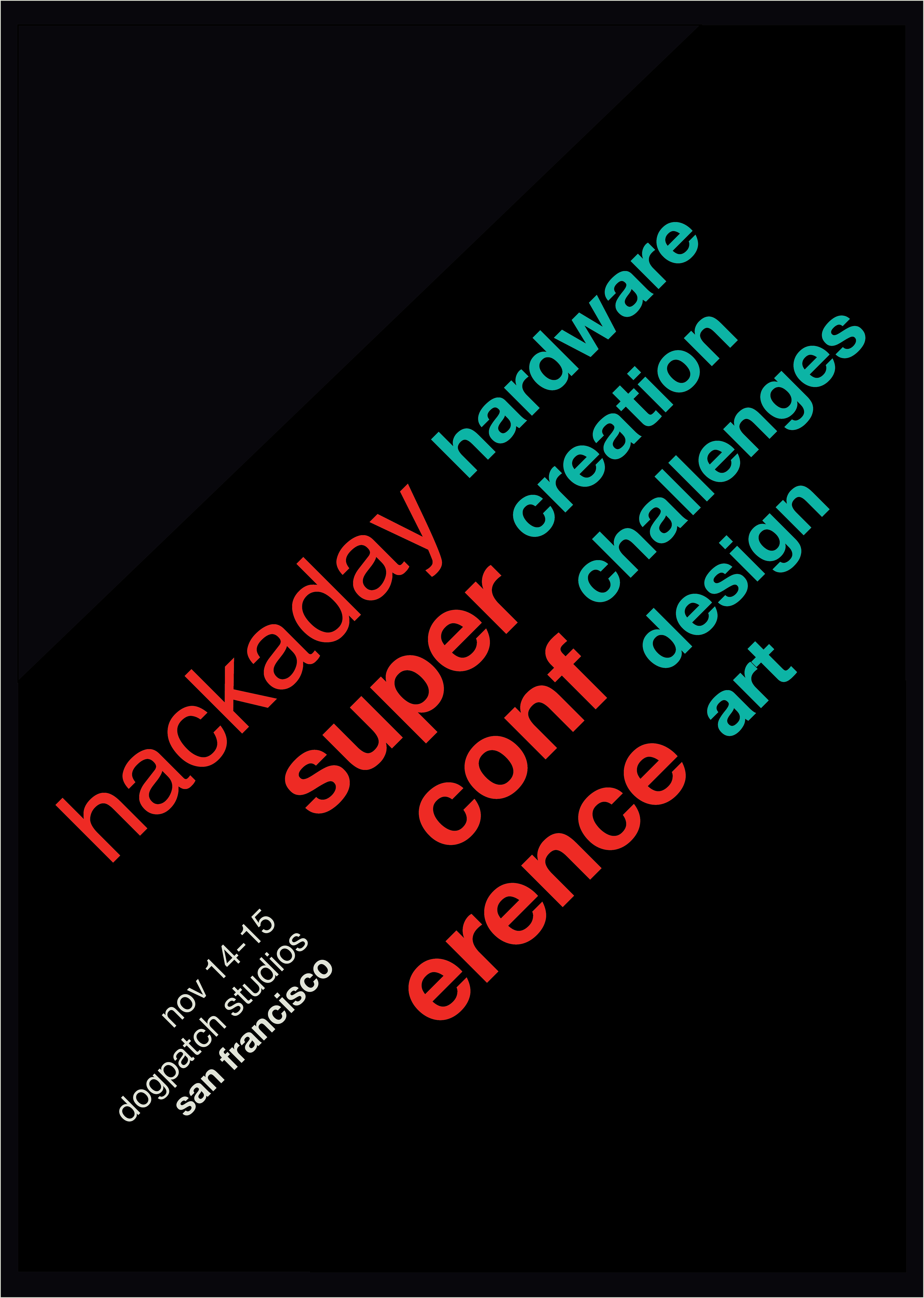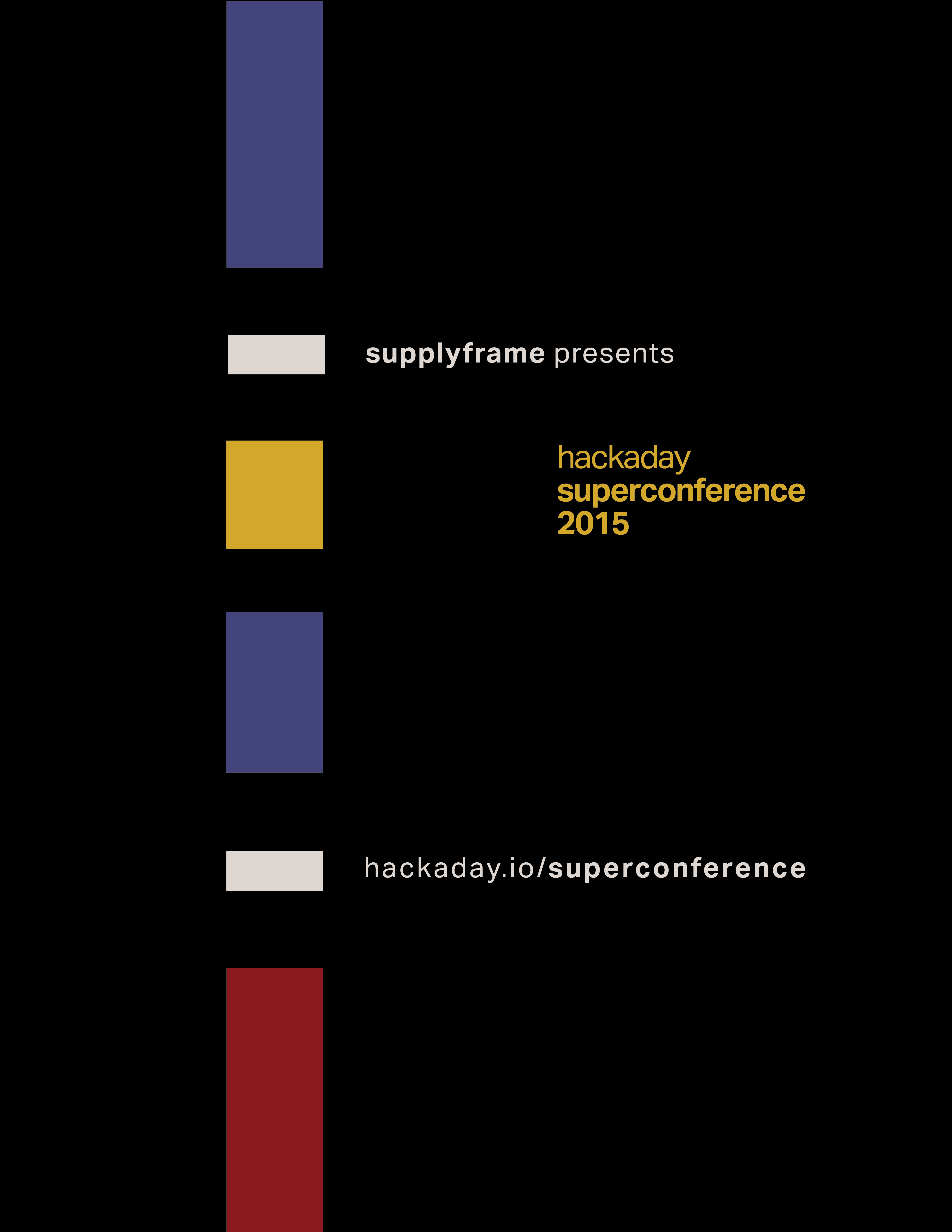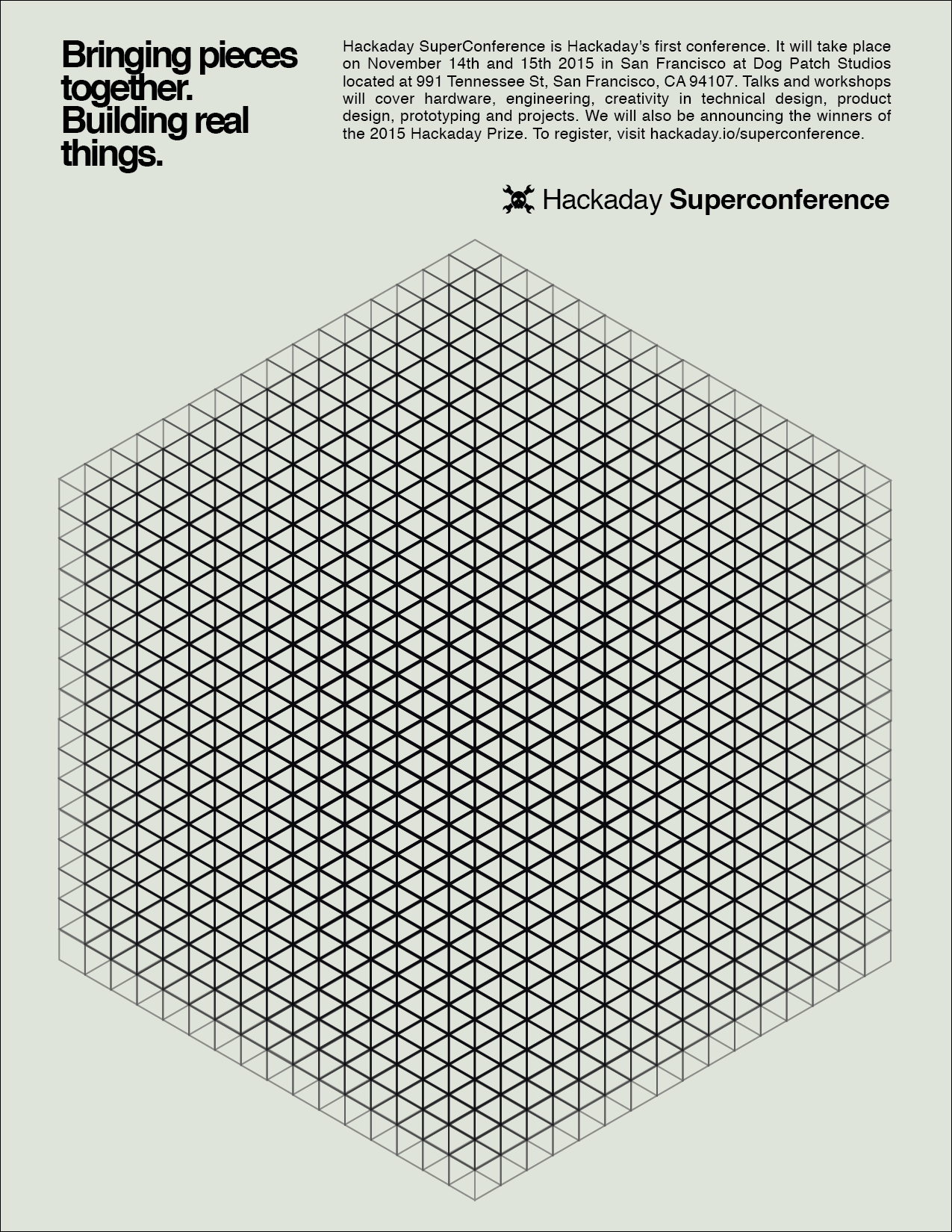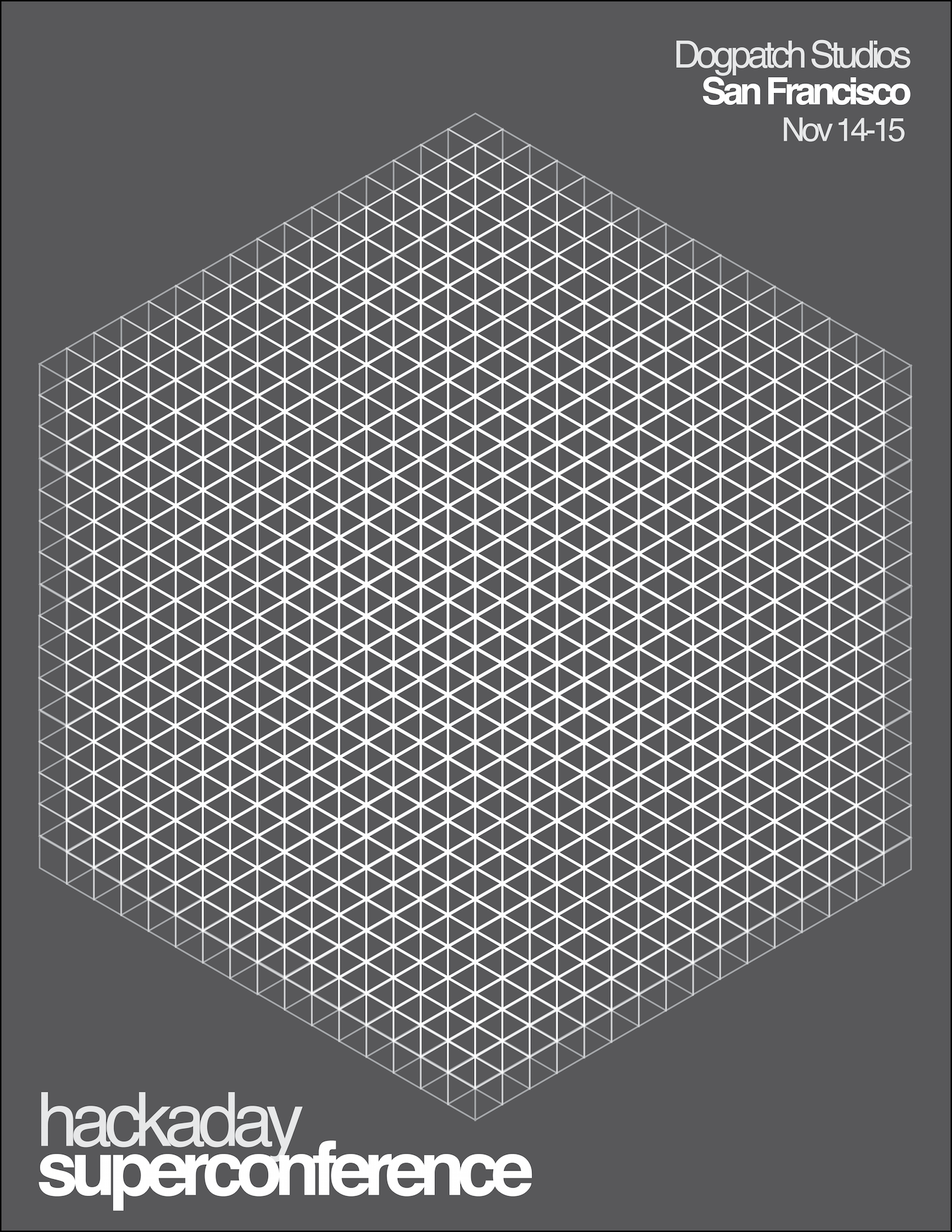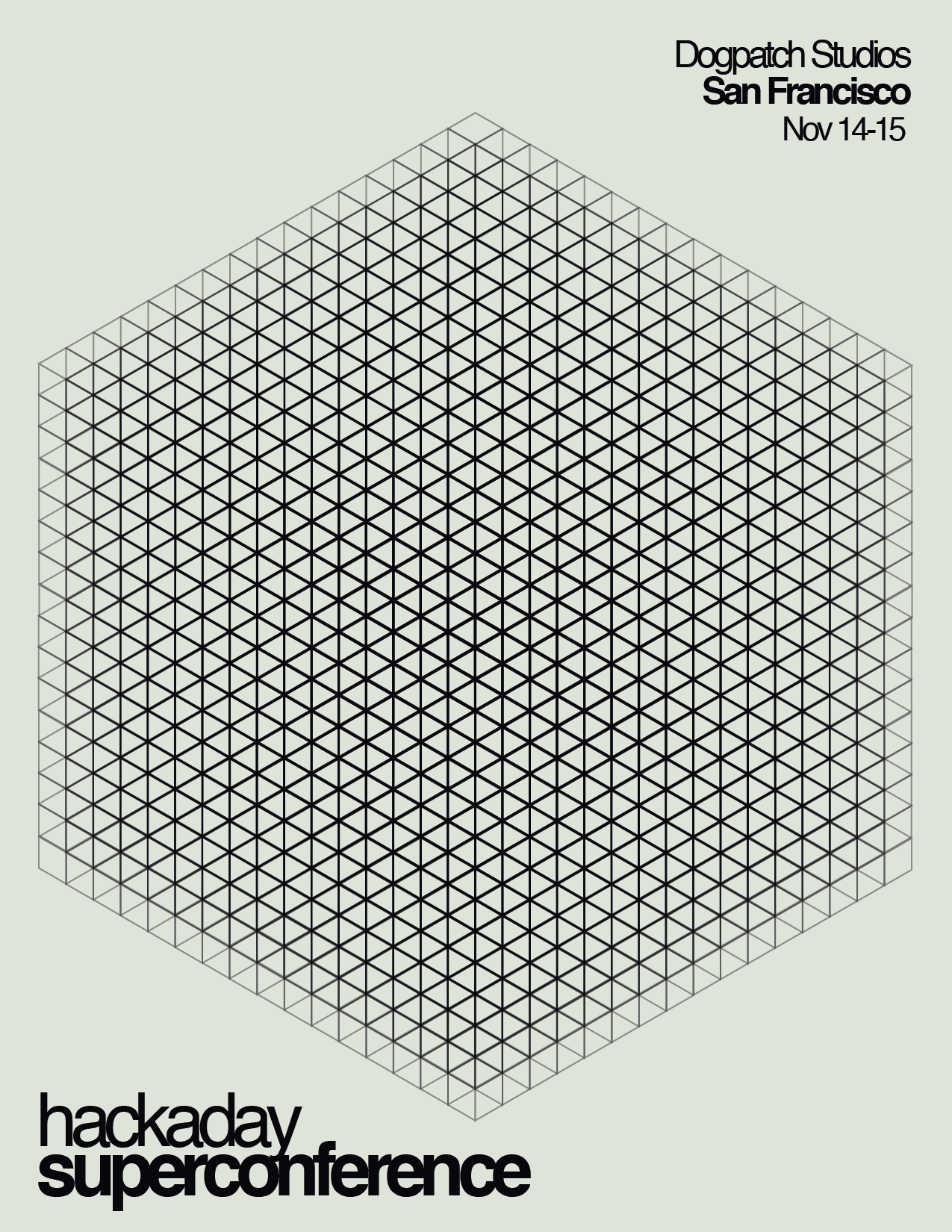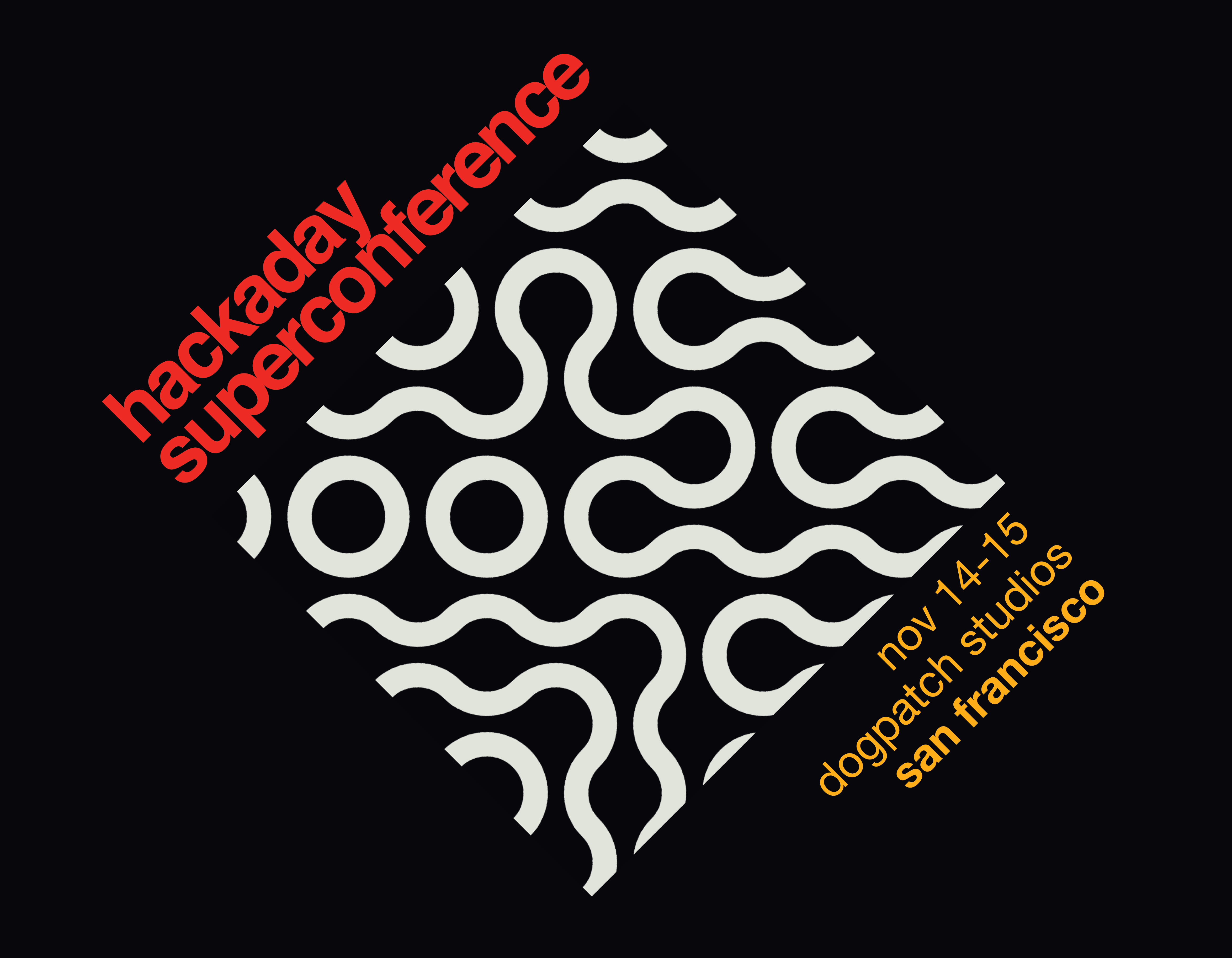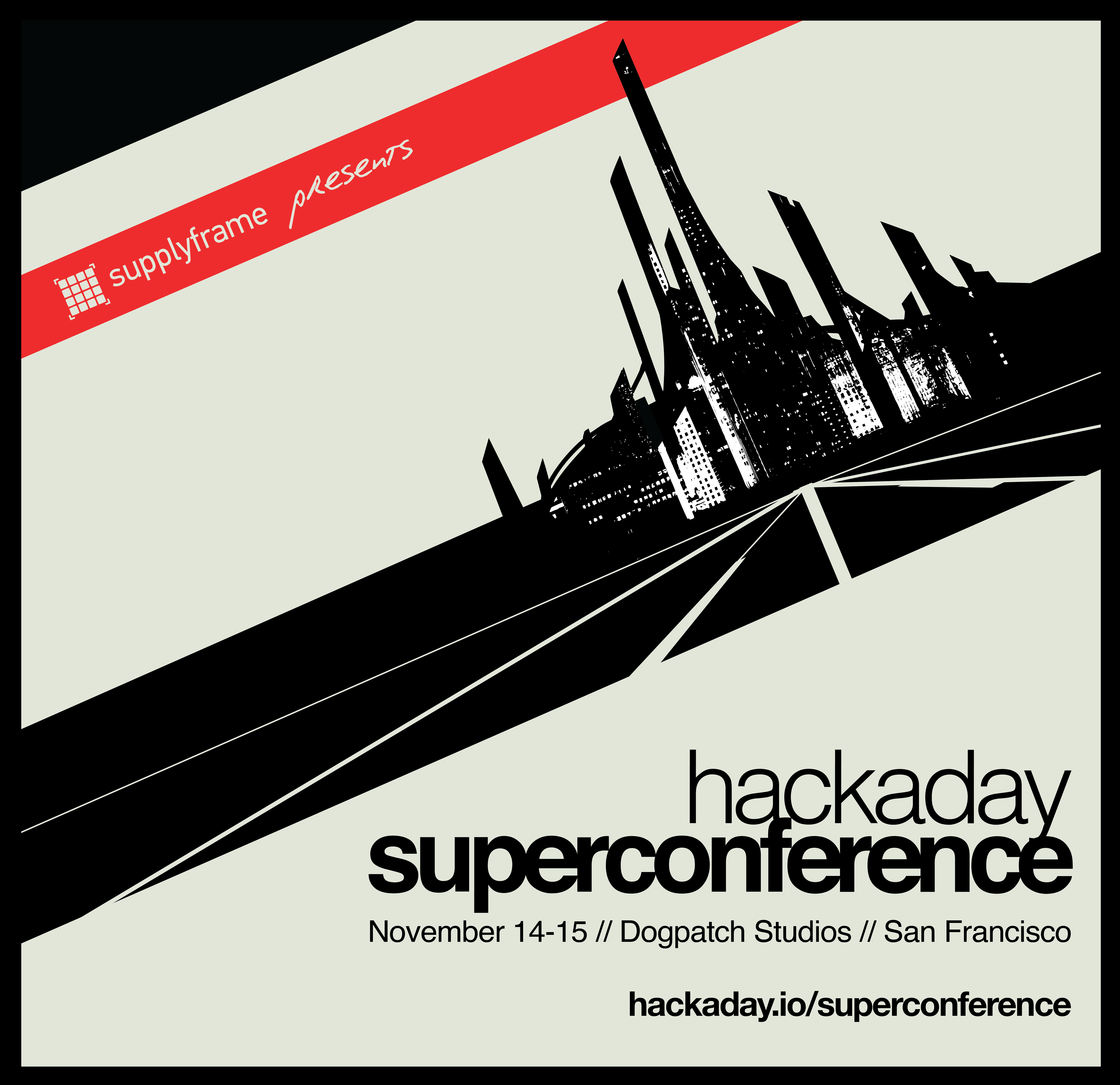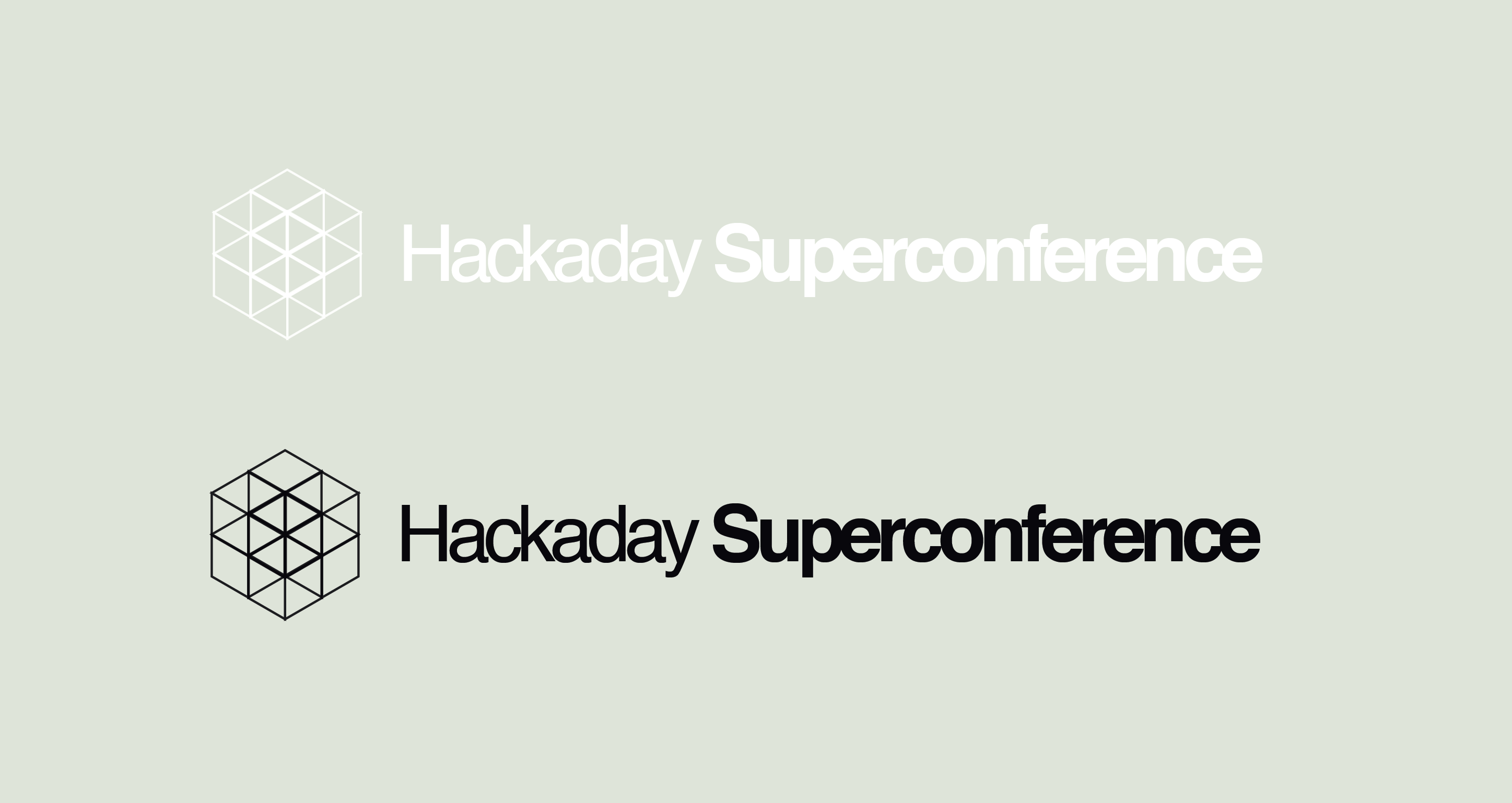-
Projects and Badge Modding at the Superconference
11/11/2015 at 22:34 • 0 commentsHello!
We are super pumped for the upcoming Superconference and we're really happy you'll be joining us! In addition to the talks and workshops that will be taking place throughout Saturday and Sunday, we have another big feature planned:
You.
OK, that was a bit corny, but the sentiment rings true. One of the reasons we believe so many of you decided to apply and ultimately attend the Superconference is because of everyone in the community. You have seen and followed their projects on Hackaday.io or elsewhere online. Now you get to meet each other face to face.
We have two requests
- Bring your projects!
- One of the best ways to get to know each other at any tech event is to talk about your projects. An even better way to talk about your projects is to have it with you and show it off while talking one on one. The best projects to bring are probably the most portable ones. However, if you have something larger and would like to display it, email us at superconference@hackaday.com (transport and set up is up to you).
- We will also have lightning talks sprinkled throughout the day on the main stage (where the talks are held). Sign up to give a lightning talk when you arrive. You can talk about your project for 2 minutes and get even more feedback from the community!
- Bring your modding materials!
- We are not showing the front of the Superconference badge just yet, but we will show the back! You can see a preview here: http://imgur.com/F5r5wpx.
- There are multiple areas for prototyping, both through-hole and SMT. The badge itself is passive but also represents a blank slate for adding stuff to your badge. Part of the evening activities is creating something new from your badge. We will have a small competition, which will conclude at the end of the conference. There are 3 categories of excellence:
- Best "dead bug" mod - You don't need some off the shelf dev board to make your badge do something cool.
- Best blinky mod - Blinky things catch the eyes, how blinky can you make a badge?
- Most over the top - What is the craziest thing you can do to a badge? Must still be wearable around your neck.
- We will be bringing a range of components for people to use (and some suggestions of what you might do with them). Good things to bring might be small breakout boards or dev boards you have lying around. If you're partial to any particular component you don't think we'll have on hand (we'll have a lot of the old standards), throw that in the bag as well. We'll have soldering stations and hot glue on hand to create your masterpiece. For the super industrious, you can download the (backside) gerbers here (if you want to pre-plan or mill boards prior to showing up).
- Bring your projects!
-
Workshops
11/05/2015 at 20:58 • 0 comments- Advanced Microcontroller-based Audio (Saturday Morning)
- Simple RF Circuit Design (Sunday Afternoon)
Michael Ossmann will show specific examples from his own designs including Ubertooth One, HackRF One, and YARD Stick One. Participants with prior experience designing non-RF circuits should be able to walk out of this workshop with the ability to design boards to use RF transceiver ICs.
Advanced Microcontroller-based Audio Project page
In this hands-on workshop run by Teensy creator Paul Stoffregen, you'll wire up parts on a breadboard to get them playing, synthesizing, and analyzing sounds in real-time. Some prior experience with Arduino is recommended. Bring a laptop computer capable of running the Arduino software. Recommended to bring headphones.BRING: Laptop & (optional) headphones. All the hardware will be provided. We're going to cover a lot of ground with hands-on activity. It's critical that everyone use identical hardware which precisely matches the written steps. That's why the audio workshop costs a bit more.
For anyone who's ever been frustrated with audio on a microcontroller... it didn't sound great, it used too much CPU time, your program was burdened with fast low-latency data movement so you couldn't use delays or simple blocking libraries like Arduino's Wire for I2C, you couldn't play or synthesize several sounds, or apply complex effects, or get high res spectral analysis in real time with proper overlapping windows, this is definitely the workshop to see. If you're used to the limitations of 8 bit chips, I believe you'll be pleasantly surprised what good a 32 bit microcontroller can do for audio!
- Squeezing Blood From A Stone: Getting Back Memory and Performance (Sunday Morning)
- Windows-enabled computer (MacOS with bandcamp or other VM could probably work)
- Github repo or the project on my HackADay profile.
- Keil MDK-Lite v5.16a for ARM Cortex free version (limited to 32kB)
- IDA demo from Hex-rays
- STM32L476 Discovery Board (Provided by workshop or here)
- (2 items here)ST-LINK V2 SW (util, driver, and firmware update)
- (Optional) Portable logic analyzer/oscilloscope.
- Crowdsourcing Control with the ESP8266 Thing (Saturday Afternoon)
- Kicad 101 (Saturday Afternoon)
- USSSSSB: Talking USB From Python (Sunday Afternoon)
2014 Hackaday Prize finalist Colin O'Flynn, will walk you through implementing a simple USB firmware project using an Atmel USB board. - Designing with Antimony for use with custom skeleton-physics simulations (Saturday Morning)
Using the 3D design software Atimony, Erin Kennedy will show you how to use Antimony to design and then create a physics simulation to observe how the forces affect your object. You will also learn how to code your own scripts for Atimony. You'll need a laptop with Atimony installed (download here: https://github.com/mkeeter/antimony), and will be using Processing with the traer.physics library. - Learn Circuit Simulation using SPICE (Sunday Morning) Using LTspice (Windows) or NG Spice (Linux/ OSX), Tom Anderson will briefly go over what a simulation is and the common types (time domain, frequency domain, and noise). He'll also explain how they work and what happens when you run them. You'll have a chance to build simulations of an RC filter and find out how to simulate the time and frequency domains to show a Bode plot. You will also build simulations of an opamp using a voltage-controlled voltage source, plus other simulations. Come with your laptop and LTSpice or NG Spice installed.
Squeezing Blood From A Stone: Getting Back Memory and Performance Project page
We’ll* guide you through a series of labs to explain how to measure performance and memory, then the basics of improving them based on your goals.
Since this is a hands on but very short workshop focusing on using the following free tools (Download and install it yourself BEFORE the workshop or you’ll be sad) and cheap hardware:
*I am looking for volunteers to help me make sure everyone gets the most of out of this workshop. If you are comfortable with C, compilers, and know/can figure out the basics of the above programs, reach out to me by contacting me at volunteer *at* rebelbot.com or tweet at me. You’ll get in the workshop as well as the conference for free and meet some of the most interesting people in SF working on hardware. Totally worth 2 hours of work.
Crowdsourcing Control with the ESP8266 Thing Project page
Toni Klopfenstein will give a general overview of the ESP8266 Thing and show basics of creating circuits that can be controlled via WiFi. There will be an interactive demo that the entire audience can participate in controlling, to show the crowd-sourcing capabilities of IoT devices.
A 4-hour version of Anool Mahidharia's popular introduction to design your own 100% custom PCB using Kicad. This workshop is tailored for the electronic enthusiast who has been breadboarding circuits but has never used an Electronic Design Automation (EDA) / computer aided design (CAD) program.
-
Talks
11/05/2015 at 20:55 • 0 commentsName Title Shanni R. Prutchi Construction of an Entangled Photon Source for Experimenting with Quantum Technologies Minas Liarokapis OpenBionics: Revolutionizing Prosthetics with Open-Source Dissemination Fran Blanche Fun and Relevance of Antiquated Technology Danielle Applestone Founding a hardware startup: what I wish I'd known! Luke Iseman Starting a Hardware Startup Grant Imahara Fireside Chat Noah Feehan Making in Public Jeroen Domburg Implementing the Tamagotchi Singularity Sarah Petkus NoodleFeet: Building a Robot as Art Alvaro Prieto Lessons in Making Laser Shooting Robots Zach Fredin You Can Take Your Hardware Idea Through Pilot-Scale Production With Minimal Prior Experience And Not Very Much Money, So You Should Do It NOW!! Kate Reed The Creative Process In Action Oscar Vermeulen PiDP-8: Experiences developing an electronics kit Reinier van der Lee The Vinduino Project Radu Motisan Global environmental surveillance network David Prutchi Construction of Imaging Polarimetric Cameras for Humanitarian Demining Rory Aronson Why great documentation is vital to open-source projects Jonathan Beri I like to move it, move it: a pragmatic guide to making your world move with motors! Neil Movva Adding (wearable) Haptic Feedback to Your Project Dustin Freeman The Practical Experience of Designing a Theatre Experience around iBeacons Kay Igwe Brain Gaming -
Superconference on Adafruit's ASK AN ENGINEER
11/05/2015 at 18:21 • 0 commentsThanks to @limor and @pt for featuring @Sophi Kravitz this week. Watch Ask An Engineer to see more details about SuperConference and the workshops!
-
FAQ
10/24/2015 at 12:21 • 1 commentSuperCon Eats
We all love to eat, and get crabby when we don't, so we're bringing in delicious eats during the day. There are also some great restaurants close by if you choose to go out.
Breakfast at SuperCon 9a -10a Coffee/ Bagels
Lunch at SuperCon 1p-2p Pizza/ Salad, vegan, vegetarian and gluten free available
Dinner (catered) at SuperCon 8p after Hackaday Prize awards ceremony
Water
We'll have water containers available, please bring your own cup/ save your cup to make less trash.
Dogpatch Eats Recommendations
Close by:
Smokestack - Smoked meats and craft beer and smoked meats and craft beer
Neighbor Bakehouse - OMG so good baked goods for breakfast (not open mon/tues)
Piccino - Nice Italian and pizza (reservations recommended)
Serpentine - New American
Gilberth’s - Latin “fusion”
Hard Knox - Soul foodUp the hill on Potrero:
Plow - American breakfast
Mochica - Latin (reservations recommended)
Umi - Sushi
Papito - Mexican
Getting Around/ Parking
Our advice is to take Cal-train as the stop is very close by.
Dogpatch Studios is in a residential neighborhood and it may be difficult to park.
Using Uber (app available on smartphone) has proved to be economical in the past, with Uber pool being $7 or less nearly everywhere with a few miles.
WiFi
We will have open WiFi at the conference, but you should come prepared with anything that you need for a workshop downloaded already. USB sticks are your friend. If you have a hotspot, bring that too.
-
Conference Art
10/11/2015 at 19:41 • 0 commentsPosters
![]()
![]()
![]()
![]()
![]()
![]()
![]()
![]()
![]()
Announcement Video
Website
http://hackaday.io/superconference
Flyers
![]()
![]()
![]()
On-Site Informational Posters (Sample)
![]()
Official Logo
![]()
 Lutetium
Lutetium